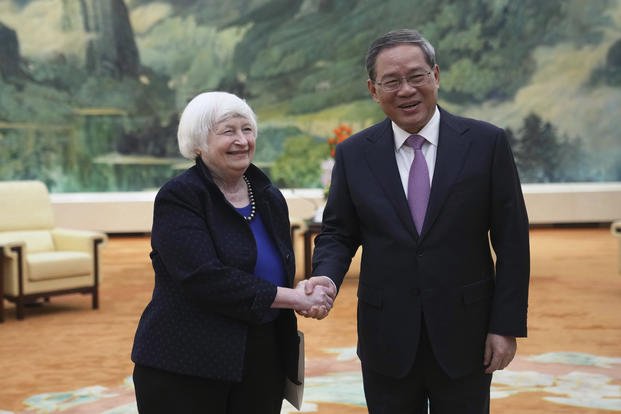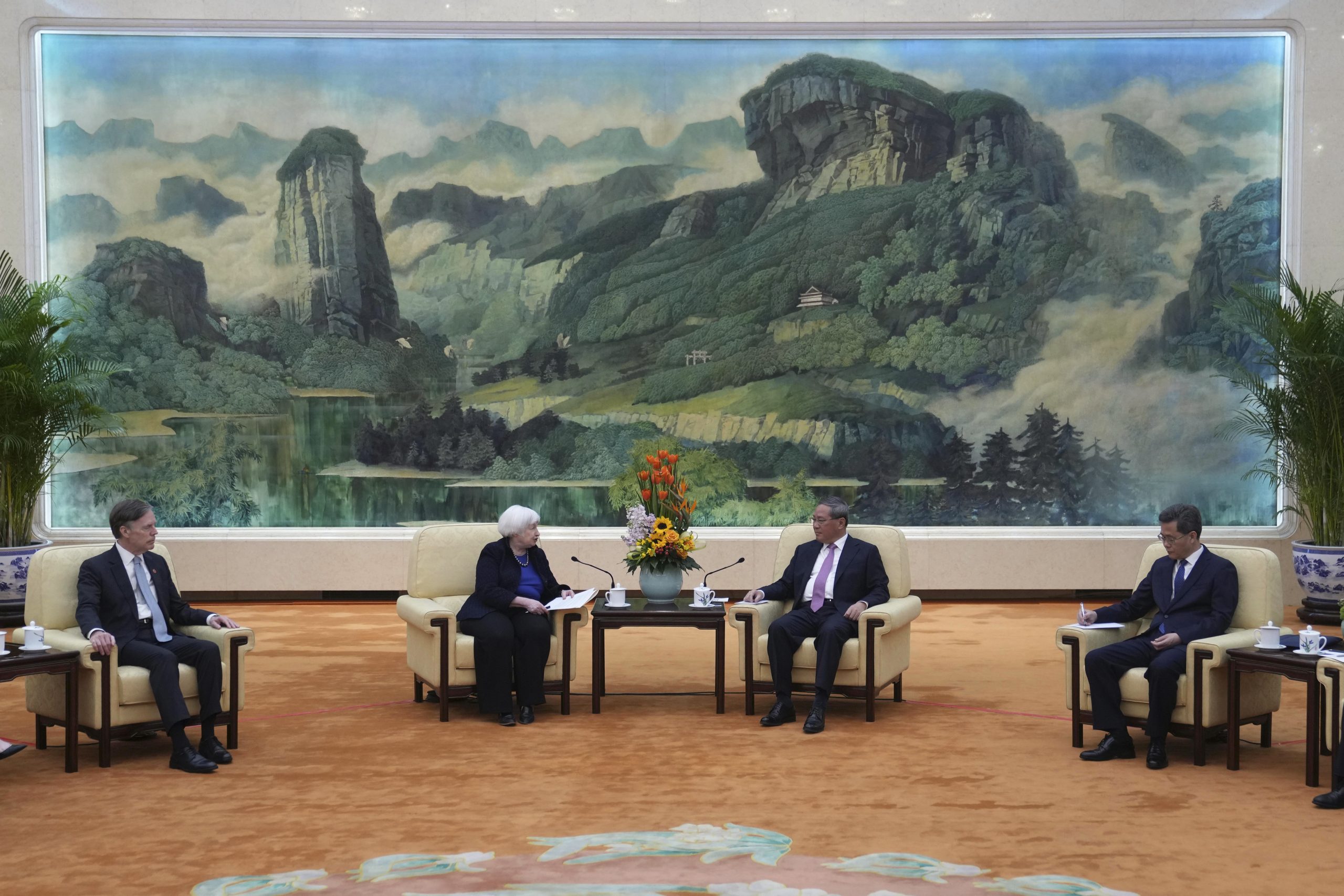U.S. Treasury Secretary Janet Yellen emphasized mutual cooperation during her meeting with Chinese Premier Li Qiang, acknowledging improvements in relations since her last visit but also recognizing significant differences that persist. Yellen’s discussions initially centered on trade and economic matters before broadening to encompass the wider U.S.-China relationship, positioning her as the first Cabinet member to visit China following the meeting between Presidents Joe Biden and Xi Jinping in November.
The meeting, held in the ornate Fujian room of the Great Hall of the People, symbolized efforts to stabilize the bilateral relationship despite the ongoing rivalry arising from China’s emergence as an economic and military powerhouse.
The United States has imposed restrictions on China’s access to advanced technology, citing concerns about potential military applications, while China accuses the U.S. of attempting to hinder its economic progress. Li expressed hopes that the U.S. would avoid politicizing economic issues and stretching the concept of national security.

Yellen Says U.S.-China Relations More Stable in Meeting with Premier (Credits: Military)
Yellen’s agenda in China prioritized addressing trade practices that disadvantage American companies and workers. She raised concerns about Chinese government subsidies benefiting industries like solar panels and electric vehicles, leading to excess production capacity that could flood international markets. However, Li argued that China’s green energy initiatives contribute positively to combating climate change, emphasizing the potential global benefits of China’s industrial development.
Following extended discussions between Yellen and Chinese Vice Premier He Lifeng in Guangzhou, both countries agreed to engage in intensive exchanges regarding economic growth and combating money laundering. Yellen stressed the importance of responsible management of the complex U.S.-China relationship, especially in addressing pressing global challenges as the world’s two largest economies.
Yellen’s visit to China marks a significant attempt to build upon a fragile stability established amidst previous tensions. The timing of her departure coincides with the arrival of Russian Foreign Minister Sergey Lavrov, highlighting China’s increasing trade ties with Russia since the Ukraine conflict in 2022. While both China and the U.S. express a commitment to cooperation regarding Russia, concerns persist regarding China’s sale of items to Russia with potential military applications.
During her meeting with Beijing Mayor Yin Yong, Yellen underscored the critical role of local governments in China’s economy, emphasizing the importance of engagement with local authorities for understanding China’s economic trajectory. She later engaged with students and faculty at Peking University, reflecting broader efforts to foster dialogue and understanding between the U.S. and China beyond official meetings.























